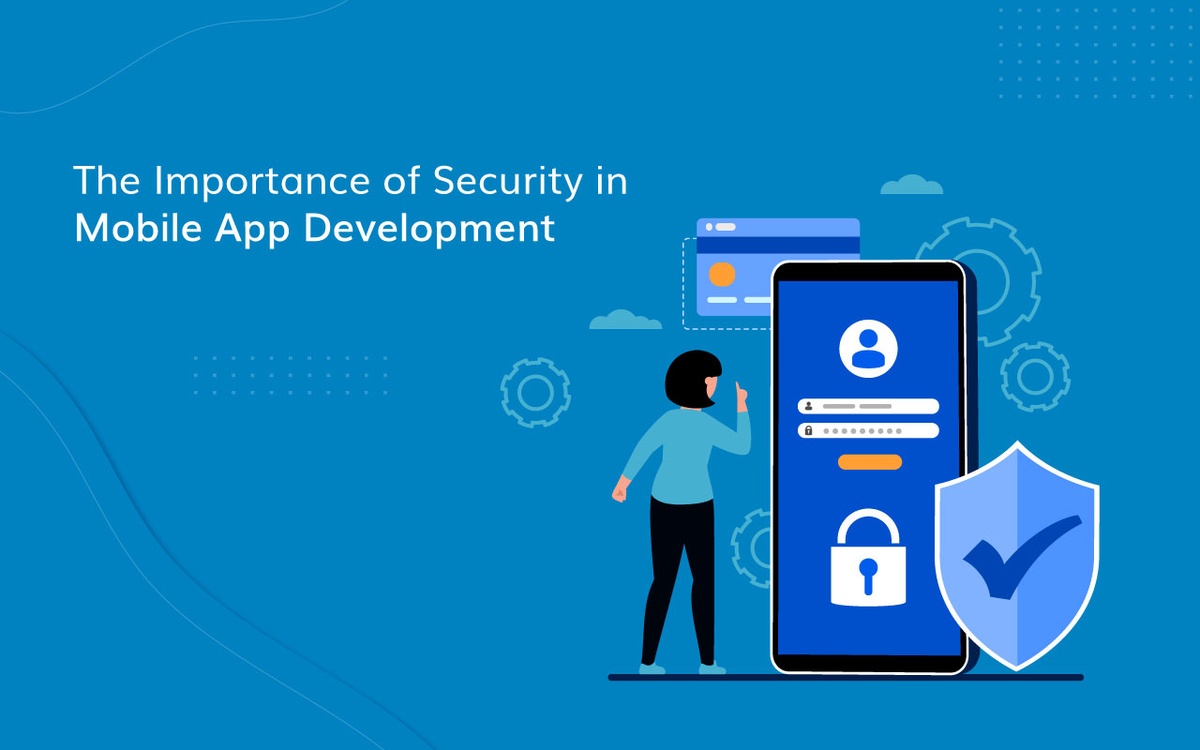Today mobile app development is one of the quickest and easiest methods to handle anything from grocery shopping to budgeting, agree?
The importance of security in mobile app development cannot be overstated, especially as we increasingly rely on them for delicate tasks. Here, we’ve documented the significance of security protocols during the development of a mobile app, using both theoretical and practical examples.
The Soaring Prevalence of Mobile Apps
As of the most recent data, there are over 4.48 million apps available on Google Play and the Apple App Store combined.
With billions of smartphone users worldwide, the app market continues to expand at an astonishing rate. Users expect these applications to be not only user-friendly and efficient but also secure and reliable.
The Alarming Reality of Mobile App Vulnerabilities
App security is getting more attention, but it’s still challenging for developers to create flawless
apps without any vulnerabilities. A report by Positive Technologies revealed that a staggering 43% of mobile applications have at least one high-risk security flaw. These vulnerabilities range from insecure data storage and lack of encryption to inadequate authentication and authorization controls.
Examples of App Security Breaches
The consequences of lax security practices in mobile app development are far-reaching and can have devastating effects on both users and businesses. Let’s take a look at some real-world examples that underscore the urgency of prioritizing security:
1. Uber Data Breach (2016):
Late in 2016, Uber had a huge data breach that put the personal information of 57 million users and drivers around the world at risk.
The hackers managed to infiltrate the company’s servers and stole names, email addresses, and phone numbers. The breach was exacerbated by Uber’s initial attempt to cover it up by paying the hackers to delete the stolen data.
2. Cambridge Analytica and Facebook (2018):
While not directly a mobile app breach, the Cambridge Analytica scandal raised significant concerns about data privacy and app security.
A personality quiz app, “This Is Your Digital Life,” collected data from millions of Facebook users without their consent, leading to the unauthorized acquisition of private information and the manipulation of user behavior for political purposes.
3. WhatsApp Spyware Attack (2019):
In 2019, hackers exploited a vulnerability in WhatsApp’s voice-calling feature to install spyware on users’ devices. The attack allowed them to access sensitive data, including messages, photos, and call logs. The breach affected both iOS and Android users, underlining the importance of securing apps across platforms.
The Cost of Security Breaches
The fallout from security breaches goes beyond reputation damage; it often leads to financial losses for businesses. IBM and the Ponemon Institute did a study in 2021 that showed the average cost of a data breach was $4.24 million.
This financial burden can be attributed to direct costs, such as legal fees, compensation for affected individuals, and forensic investigations, as well as indirect costs, including customer churn and loss of business opportunities.
User Trust and Loyalty at Stake
User trust is a cornerstone of any successful app, and security plays a vital role in establishing and maintaining that trust. According to a survey by Pew Research Center, 79% of smartphone users expressed concern about their data being accessed by third parties without their knowledge. If users feel their data is at risk, they are likely to abandon an app or refrain from sharing critical information, ultimately impacting the app’s success.
The Role of Secure Development Practices
To ensure robust security in mobile app development, developers must adopt secure
development practices throughout the entire app lifecycle. Some essential steps to consider include:
1. Code Review and Testing
Perform thorough code reviews and security testing to identify vulnerabilities and weaknesses. Techniques like penetration testing and static and dynamic analysis can uncover potential flaws early in the development process.
2. Encryption and Data Protection
Ensure that sensitive data, both in transit and at rest, is encrypted using industry-standard protocols. Use safe authentication methods to keep people from getting in who shouldn’t.
3. Regular Updates and Patches
Keep the app up-to-date by adding patches and updates on a daily basis to fix new security holes and threats.
4. Secure APIs
If your app relies on APIs (Application Programming Interfaces), ensure they are adequately secured and authenticated to prevent unauthorized access.
5. User Education
Promote user awareness about app security best practices, such as strong password usage, two-factor authentication, and app permissions.
Summary of the blog
In the fast-paced world of mobile app development, where innovation and convenience drive success, security must remain a top priority. The rising incidents of data breaches and app vulnerabilities underline the criticality of implementing robust security measures.
Developers must embrace secure development practices to protect user data, maintain trust, and safeguard their reputation. As users continue to rely on mobile apps for essential tasks, ensuring the security and privacy of these applications is not just a responsibility but a commitment to a safer digital future.
By investing in robust security measures and staying proactive in detecting and addressing vulnerabilities, developers can not only protect their users but also build a long-lasting, successful mobile app that stands the test of time. Remember, security is not just an option; it’s a necessity in the ever-evolving world of mobile applications.


No comments yet